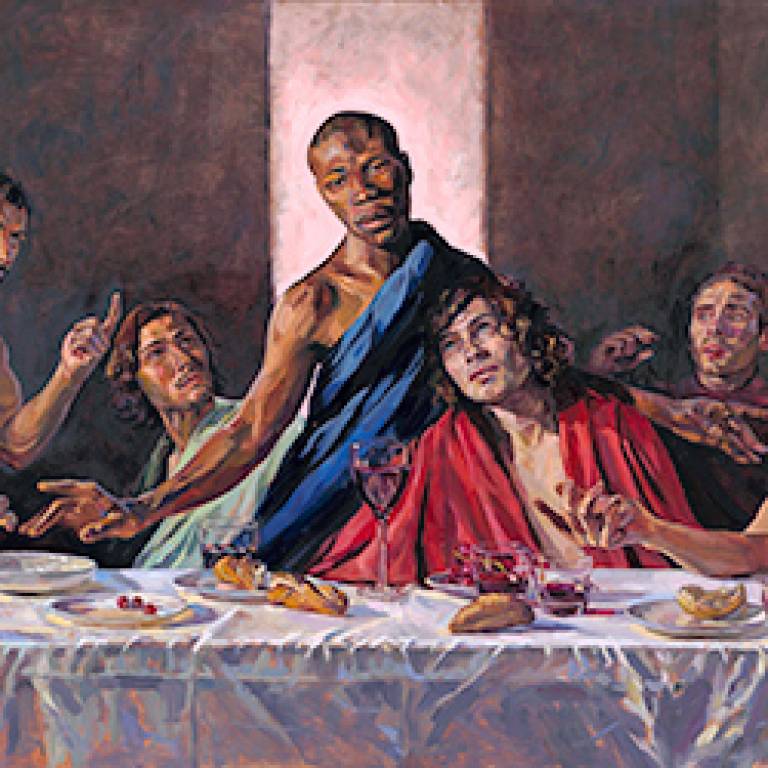CFP: "As it was in the Beginning? Liberation Theology and Praxis in Contemporary Latin America"
27 August 2020


CALL FOR PAPERS: As it was in the Beginning? Liberation Theology and Praxis in Contemporary Latin America
Online Conference, 18th-20th November 2020; Working hours for the conference will be 16.00-20.00 GMT
Keynote Speakers:
Enrique Dussel, Professor of Ethics, Universidad Nacional Autónoma de México
Martha Zechmeister, Professor of Systematic Theology, Universidad Centroamericana José Simeón Cañas
It is now some fifty years since Liberation Theology emerged from Latin America with a prophetic vision for the Catholic Church which would alter its social mission, its relationship with the laity, with other religions, and with the world. With the benefit of historical hindsight, however, it can seem that the first wave and the high water mark for the discourse were one and the same. If, amidst the febrile revolutionary atmosphere of 1968, the second meeting of the Consejo Episcopal Latinoamericano in Medellín proclaimed the influence of liberation theologians on the institutional Church, the publication of Gustavo Gutiérrez’s seminal Teología de la liberación in 1971 seemed to cement its importance. By the CELAM meeting in Puebla in 1979, however, the tide had seemingly turned. In 1985, Leonardo Boff was instructed to observe a period of obsequious silence following the publication of his book Igreja: Carisma e poder (1981), and the Congregation for the Doctrine of the Faith issued its (in)famous ‘Instructions’ on the theology in 1984 and 1986. Nonetheless, by returning to the central question of praxis – the lived experiences, spiritual and embodied practices of all those engaged in social action in the region – this conference seeks to challenge this narrative in dialogue with the pre-eminent historian of liberation theology, Enrique Dussel, and an important contemporary theologian working in El Salvador, Martha Zechmeister.
There can be no doubt that recent events have rekindled interest in Latin American liberation theology. The election of Pope Francis, the critique of capitalism in his encyclical Evangelii Gaudium (2013), and his turn to ecological concerns in Laudato Si’ (2015), echo the economic and environmental focus of theologians such as Gutiérrez and Boff. Indeed, last year’s Amazon Synod and the clamour for reform of the Curia confirm the importance of liberationary approaches to ecology and radical ecclesiology. Similarly, secular social movements such as those against feminicide and for the decriminalization of abortion have precipitated considerable advances in women’s theology in Latin America, while building on the base constructed by early liberation theologians. For these reasons, this conference seeks to re-evaluate the history and legacy of liberation theology by examining religious praxis in the region from the 1960s to the present day.
The conference will create dialogue between academics working in diverse fields such as history, theology, cultural and religious studies, sociology, and anthropology. Possible topics for papers include, but are not limited to:
- Historical analysis of Liberation Theology and its legacy in Latin America;
- Theological influences on ecological, feminist and other social movements in the region;
- Artistic engagement with Liberation Theology;
- Liberation Theology, ecumenism and interfaith dialogue in contemporary Latin America;
- Sociological analysis of Ecclesiastical Base Communities in contemporary Latin America;
- Reflections on the current pandemic from the perspective of liberation theology.
Abstracts of approximately 250 words should be emailed to the conference convenors Niall Geraghty (UCL), Pablo Bradbury (ILAS) and Vinicius Mariano de Carvalho (KCL) at the address Pablo.Bradbury@sas.ac.uk BY 6th October 2020.
Hosted by the Institute of Latin American Studies, King’s Brazil Institute, and University College London with the generous support of the Leverhulme Trust.
 Close
Close

